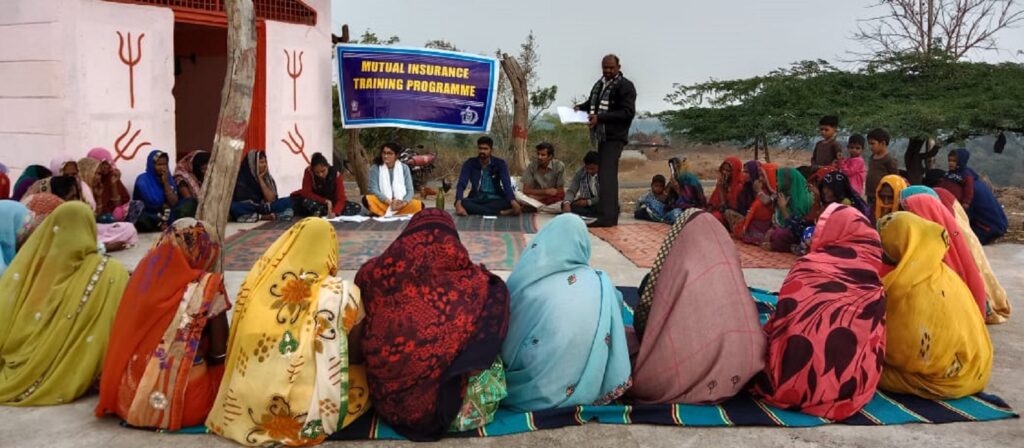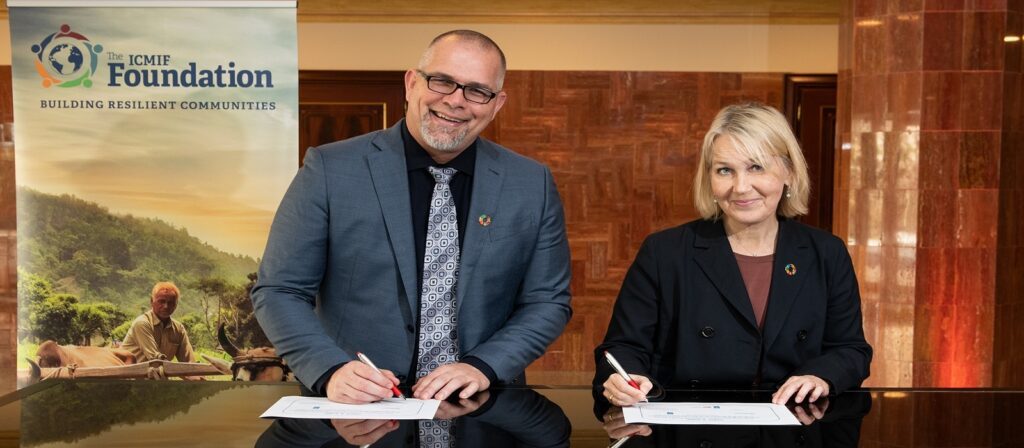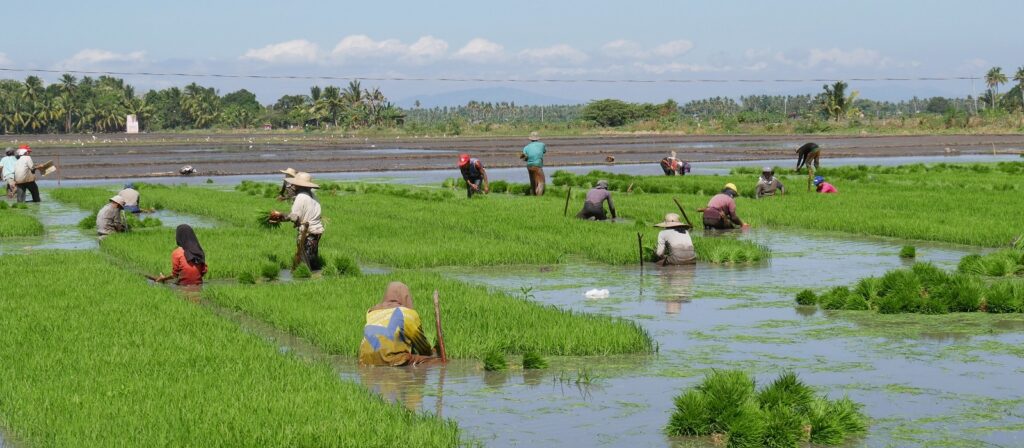We are pleased to share this guest blog from Dr Jaime Aristotle B. Alip who wrote the article for the Manila Bulletin after the ICMIF Centenary Conference in October 2022. The article is reproduced here for the benefit of ICMIF members with the kind permission of Dr Alip.
As the world faces crisis after crisis, it is heartening to note that cooperatives and mutual insurers are demonstrating positive impact in terms of disaster risk reduction and resilience. I saw examples of their initiatives during the Centenary Conference of the International Cooperative and Mutual Insurance Federation (ICMIF), 24-28 October 2022, in Rome (Italy). It was a unique gathering of mutual and cooperative insurance leaders from around the world, participated in by more than 400 delegates from 140 organisations in 37 countries.
The Philippines was well-represented by the Microinsurance MBA Association of the Philippines (MIMAP), CLIMBS Insurance Cooperative, 1CISP Insurance Cooperative, CARD MBA, CAMIA, CARD MRI, Kasagana-Ka MBA, and CARE MBA — grassroots-based microinsurance organisations that greatly contribute to social and financial inclusion in the country. Complementing the services offered by their affiliate-microfinance institutions and other commercial insurance providers, these microinsurers help in poverty eradication by protecting their poor clients’ assets against losses from death, accident, illness, injury, disaster and other unforeseen events. I am glad the Cooperative Development Authority also witnessed their active participation in the conference.
5-5-5 Strategy
The conference offered opportunities to learn about the best practices of mutual and cooperative insurance companies worldwide. It was jam-packed with sessions that map the future trends for their business transformation, sustainability and purpose-led strategies. ICMIF is a good platform to pursue microinsurance for the poor, especially in emerging markets, as they are the ones most vulnerable to calamities and other difficulties. ICMIF’s 5-5-5 Mutual Microinsurance Strategy focuses on poor communities that are most vulnerable to the impacts of natural disasters and climate change; it aims to protect five million households in five different countries over five years. The Philippines was selected to take part in this project because we have the fastest-growing microinsurance industry in Asia, fuelled by a favourable regulatory environment that supported market expansion via mutuals. Of the 44.81 million lives insured by microinsurance from January-March 2022, more than half (25.7 million or 57 percent) were insured by MBAs. They also contributed the bulk (PHL 1.57 billion or 59 percent) of the total PHL 2.65 billion microinsurance premiums collected for the same period.
ICMF has partnered with RIMANSI (MIMAP) in implementing the 5-5-5 Strategy. RIMANSI is building the capacity of its member MBAs in providing microinsurance to poor communities across the country, with MFIs as marketing and distribution channels. The Philippine microinsurance MBA model is touted as a very successful approach that can and should be replicated. That is one of the reasons why the United Nations Development Programme (UNDP) and the ICMIF Foundation launched the UNDP Insurance Innovation Challenge Fund to support the ICMIF Foundation in promoting microinsurance for the poor via mutuals and cooperatives.
Inclusive resilience
Poor communities are often the worst affected and the least able to recover after a disaster. Without safety nets, the most vulnerable can be locked into a downward spiral of debt and poverty. Risk finance and insurance solutions enable countries to be better prepared for catastrophes by reducing humanitarian impacts, building people’s capacity to recover quickly, and strengthening community resilience.
Cooperatives and MBAs, with their focus on innovation and community engagement, are advocating partnerships with the private sector and regulators to promote microinsurance to help the poor. I hope that the ICMIF, UNDP and the United Nations Office for Disaster Risk Reduction (UNDRR) could support their advocacy for policy reforms, particularly in lobbying to remove the onerous taxes being levied on non-life insurance in the Philippines (currently at 25-27 percent of premium).
Advocacy support to convince the government to maintain the tax-exempt status of MBAs is also important, not only because they are community-based organisations but because they are able to reach the poorest, thus, crucial to financial inclusion. Supporting MBAs will allow them to offer affordable microinsurance, not only life insurance but also non-life insurance products like disaster insurance, agriculture insurance, business interruption insurance, health insurance, and other products that respond to the varying needs of the poor in the wake of climate change.
Safeguarding gains
Building the financial resilience of communities will safeguard gains in development. ICMIF has launched a benchmarking tool to help insurers measure themselves against set standards for resilience and disaster prevention initiatives. It also launched the ICMIF-calibrated Insurance SDG Calculator, a tool that measures how well mutuals and cooperatives are pursuing their social development goals. These are very good initiatives that need to be supported.
There were talks about climate bonds and green bonds during the conference, to address the negative impact of climate change. These are laudable moves, but we need to see if their benefits really trickle down to the poor or retained by large corporations. As values-led insurers, we need to focus on financial inclusion rather than profits. I propose instead a microinsurance bond to support MBAs and cooperatives so they can expand their operations and offer more innovative products that will really benefit the poor. After all, mutuality means to help one another, especially in times of difficulties. In the words of author Sharon Salzberg: “Resilience is based on compassion for ourselves as well as compassion for others.”
Dr Jaime Aristotle B. Alip is a poverty eradication advocate. He is the founder of the Center for Agriculture and Rural Development Mutually-Reinforcing Institutions (CARD MRI), a group of 23 organisations that provide social development services to eight million economically-disadvantaged Filipinos and insure more than 27 million nationwide. Aris is also a Vice Chair on ICMIF’s Board of Directors and was Chair of the ICMIF Foundation from 2015-2020, a registered charity in England and Wales, established by ICMIF to deliver the ICMIF 5-5-5 Mutual Microinsurance Strategy.
The original article was published on 7 November 2022 in the Manila Bulletin.
Other articles by Dr Alip on the Manila Bulletin can be found here.






